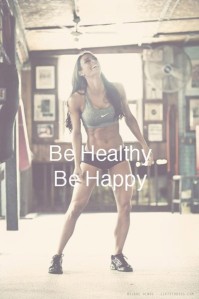
By: Dana Baardsen
Carbs are…Good?
Strength and Conditioning Journal reported the benefits of eating complex carbohydrates prior to light or intense exercise. Our bodies first take energy from carb sources in the body, and then begin to take energy from protein. By eating a small amount of complex carbs before working out, your body will actually still burn energy from fat, but continue burning energy from the complex carbs rather than stealing protein from your muscles. By consuming complex carbs in moderate amounts you are protecting your body’s protein stores. Even though you might want to refrain from eating to decrease body fat percentage, you are doing your body a disservice by not providing yourself with enough power and energy (through food) to endure a full fat-burning work out.
Electify Your Cells.
Aside from complex carb consumption, it is important to remember your electrolyte balance and more importantly the Sodium Potassium Pump. The Sodium Potassium Pump works on a cellular level, allowing our muscles to contract properly. To see if you are maintaining adequate nutrient levels, check out the Super Food Tracker on mypyramid.gov.
Sodium and potassium are major electrolytes in our body. Remember when you sweat, your electrolytes are pouring out from the surface of your skin. Maintain your electrolyte balance by sipping on a sports drink or try coconut water for a natural electrolyte-packed drink. There are several home-made electrolyte drink options available as well.
Can you say B?
If you aren’t getting enough B vitamins, you can kiss an energizing workout goodbye. Consider the B vitamins best friends to your metabolism. Though preferably obtained through food sources, you can reap the benefits from supplements. The Bs are water soluble, so whatever your body doesn’t need will be removed as waste.
B1 (Thiamin) : A large proportion of the thiamin consumed in the United States comes from enriched grains used in foods such as breakfast cereals, breads, and other baked goods. Pork, whole grains, legumes, nuts, and seeds, are also good sources.
B3 (Niacin) : Meat and fish are good sources of niacin. Other sources include legumes, mushrooms, wheat bran, asparagus, and peanuts. Niacin added to enriched flours used in baked goods provides much of the usable niacin in the North American diet.
B5 (Pantothenic Acid) : Pantothenic acid is particularly abundant in meat, eggs, whole grains, and legumes. It is found in lesser amounts in milk, vegetables, and fruits . Pantothenic acid is susceptible to damage by exposure to heat and low- or high-acid conditions.
B6 : Animal sources include chicken, fish, pork etc. Good plant sources include whole-wheat products, brown rice, soybeans, sunflower seeds, and some fruits and vegetables such as bananas, broccoli, and spinach.
B12 (Cobalamin) : Animal sources include chicken, fish, shellfish, eggs, and milk.
Inhale…and Exhale.
Air! Only.
If you’re serious about maintaining your energy levels and stamina, then get rid of those cigarettes. Not only will ciggies give you lung cancer, but they will slow you down tremendously. Ick.
Oxygen, carried by our red blood cells, is one of the most important factors in upping energy levels. Don’t smoke up your oxygen supply, rather practice slow breathing exercises prior to working out.
Whether your busting moves on the dance floor, pumping iron, or running a marathon, you will have a greater shot at getting more from the workout if you practice controlled breathing.
So remember, breathe– don’t wheeze. NB

